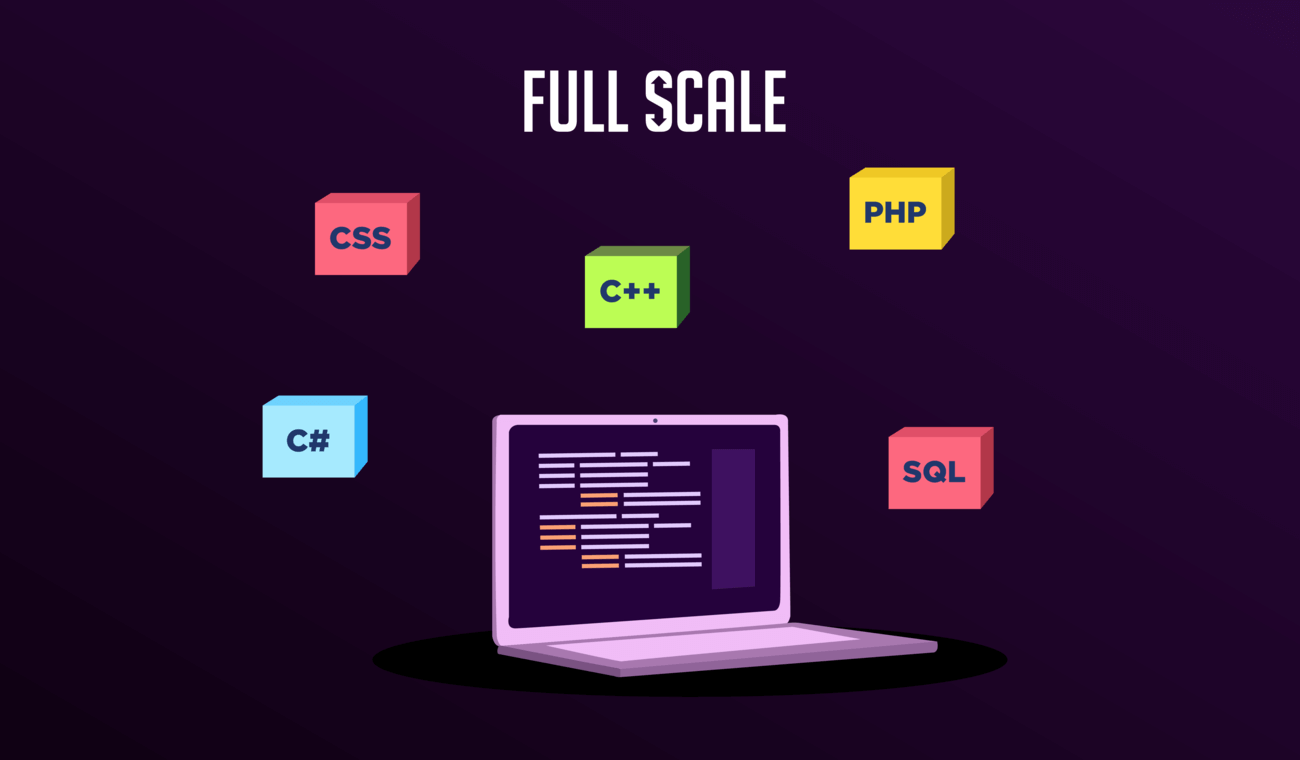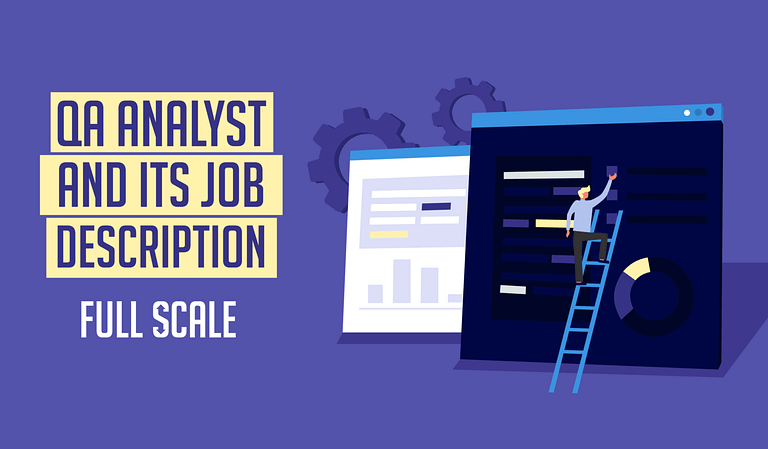Last Updated on 2024-10-11
Behind great software is a great team that works wonders. Part of that team is a gatekeeper called a QA analyst, who makes sure that everything throughout the process is in line with industry standards. If you’re wondering what quality assurance entails or how a quality assurance analyst fits into the development and software testing system, then read more about it below.
Given that the technological revolution is upon us, jobs related to IT and system infrastructure are sprouting in the market. In fact, the U.S. Bureau of Labor Statistics expects employment opportunities for industry professionals to grow by 11 percent from 2019 to 2029.
And part of that wave is the increasing demand for QA analysts. It’s a specialist position that works with the development team during the development, software testing, and pre-deployment stages. But what exactly does a quality assurance job description look like? Are there certain sets of skills required for QA jobs? Let’s find out.
QA Analyst 101: Who Are You?
A quality assurance analyst (QA analyst) is responsible for analyzing the whole process to produce a high-quality product. At times, the QA analyst is also known as a localization specialist or test analyst by some companies.
Analysts examine the entire system whether quality standards are met at every stage of the development. The main role of the analyst is to prevent any errors and defects before software deployment.
Although uncommon, there are a number of companies where the QA analyst also functions as a tester. The analyst scrutinizes thousands of code lines for bugs and other flaws. Also, the job involves examining the language, interface, and behavior of the software, so it fits the local target market.
Moreover, the QA analyst works closely with the QA engineer. Based on the analysis report, the QA engineer creates guidelines for quality metrics and other applicable standards for the entire development process.
Common Workplace of A QA Analyst
A QA analyst’s playground is not limited to the usual tech companies that develop software and apps. Various industries using advanced technologies and software in different contexts need these professionals too. So here are the top companies that employ QA jobs.
- Gaming and App Developers
- Software Localization Industry
- Hospitality Industry (e.g., airline companies, travel and accommodation companies, restaurants)
- Entertainment and Social Media Platforms
- Computer Systems Designers
- Consultancy and Service Providers (e.g., management, scientific, technical)
- Engineering and Architectural Industries
Yes, it may be surprising to see unexpected industries needing the expertise of a QA analyst to define quality standards. But you need to remember that software is a tool that can be used for a wide range of purposes. Thus, any organization that uses it may need a specialist that ensures the full functionality of the tool.
Typical Duties of A Quality Assurance Analyst
The quality assurance job description covers a broad area of manual and automated testing and bug fixes. However, the duty of a QA analyst revolves around analyzing the entire development process to create high-quality software. These responsibilities are common examples of what a QA analyst takes care of within the company:
- Develop and execute test plans for software quality assurance
- Ensure that quality objectives are met from the requirements analysis to development and until deployment
- Identify and analyze flaws within the development stage
- Recommend and monitor fixes and other preventive measures to make sure quality standards are hit
- Create and analyze statistical data, consumer complaints, and other types of information for the innovation of systems and guidelines
- Work with the QA engineer in drafting quality assurance procedures, internal policies, and regulatory requirements
Therefore, in simple terms, a QA analyst focuses on quality management and regulatory compliance. The analyst may not always directly test the software for bugs and flaws. But he or she helps in making sure that the systems and quality guidelines are in line to achieve efficiency and quality standards.
Are You A Good QA Analyst?
So to become a good quality assurance analyst, you must possess these traits to succeed in your role.
Top 5 Technical Skills
- Strong programming knowledge, which is not limited to:
- SQL
- Python
- Java
- Strong knowledge of a wide range of software development and applications
- Strong software testing strategies
- Relevant expertise in IT systems, hardware, and networks
- Relevant knowledge and experience in scrum and other project management strategies
9 Ultimate Soft Skills
- Detail-oriented
- Organized
- Meticulous
- Creative in approaching problems
- Strong critical thinking and analytical skills
- Team player
- Ability to see the bigger picture by stitching the little details together
- Strong communication skills; can communicate clearly both verbally and written
- Ability to identify strengths and weakness of systems through logic and reasoning

Industry Experts’ Advice to Become A QA Analyst
Finally, more ideas of what a QA analyst does for a living have been revealed. Are you interested in becoming one? Well, if you are, then take note of the following tips shared by experts in the field.
1. Acquire the degree and skills needed for QA jobs.
There are two ways to approach this advice. Firstly, you can get a degree related to computer science and other software-related courses. Or, you can learn the skills by yourself—it can be challenging but rewarding once you succeed.
2. Secure relevant job experience.
Besides an actual job, an internship is a great way to test the waters and gain experience. So if you’re still a student, you can ask for advice from your advisor and other mentors to help you find the right opportunities. And if you’re already a professional looking for a career change, then look for news around tech-related communities for jobs to help you break into the industry.
3. Plan for additional certifications.
Increase your knowledge and qualifications in software testing and QA jobs by getting certifications. For one, it will not only boost your chances for a job or promotion. Furthermore, it will widen your professional horizon as you think ahead of your career path as a QA professional.
In a nutshell, a QA analyst makes any company confident in the software it builds. Preventing any malfunctions and other flaws in the system can bring client satisfaction, which is important for every software-using company out there.
Discover more resources at Full Scale
Now, do you want more insightful discussions on software development, teams involved in developing it, and other tech-related advice? Explore Full Scale for more business and technology tips for your business and career.
And if you also need an offshore development service provider, you can get in touch with us today for a FREE consultation. Just let us know what you need, and we can plan on how we can help you succeed and achieve your goals.

Matt Watson is a serial tech entrepreneur who has started four companies and had a nine-figure exit. He was the founder and CTO of VinSolutions, the #1 CRM software used in today’s automotive industry. He has over twenty years of experience working as a tech CTO and building cutting-edge SaaS solutions.
As the CEO of Full Scale, he has helped over 100 tech companies build their software services and development teams. Full Scale specializes in helping tech companies grow by augmenting their in-house teams with software development talent from the Philippines.
Matt hosts Startup Hustle, a top podcast about entrepreneurship with over 6 million downloads. He has a wealth of knowledge about startups and business from his personal experience and from interviewing hundreds of other entrepreneurs.





